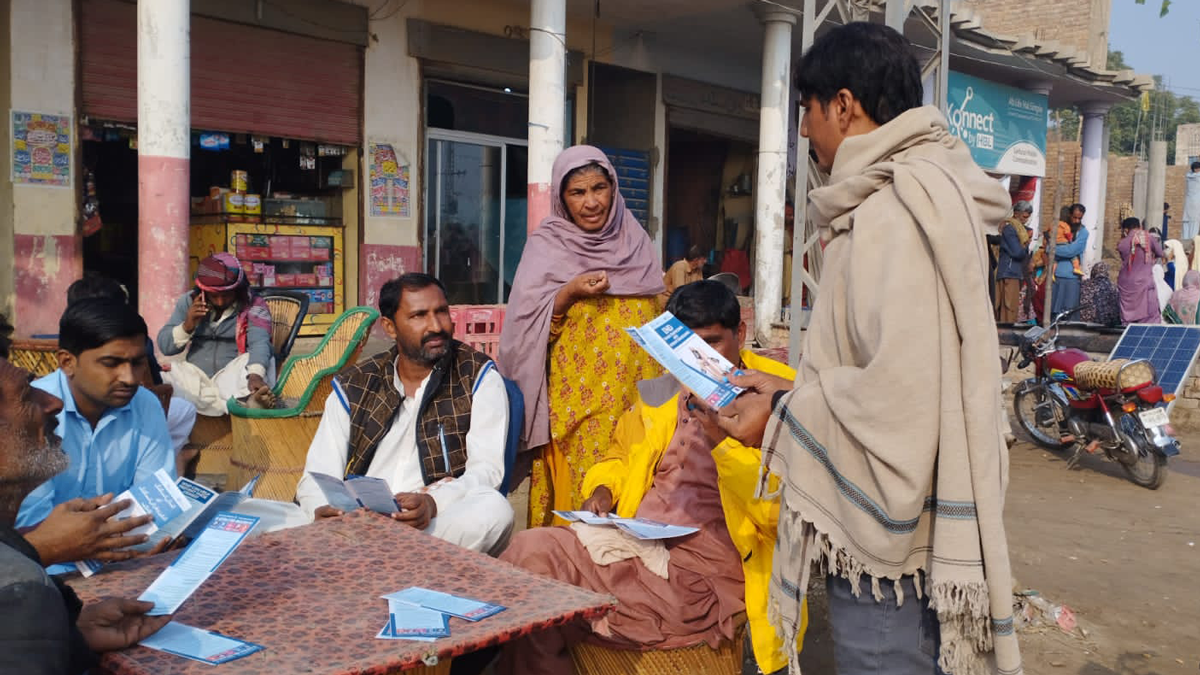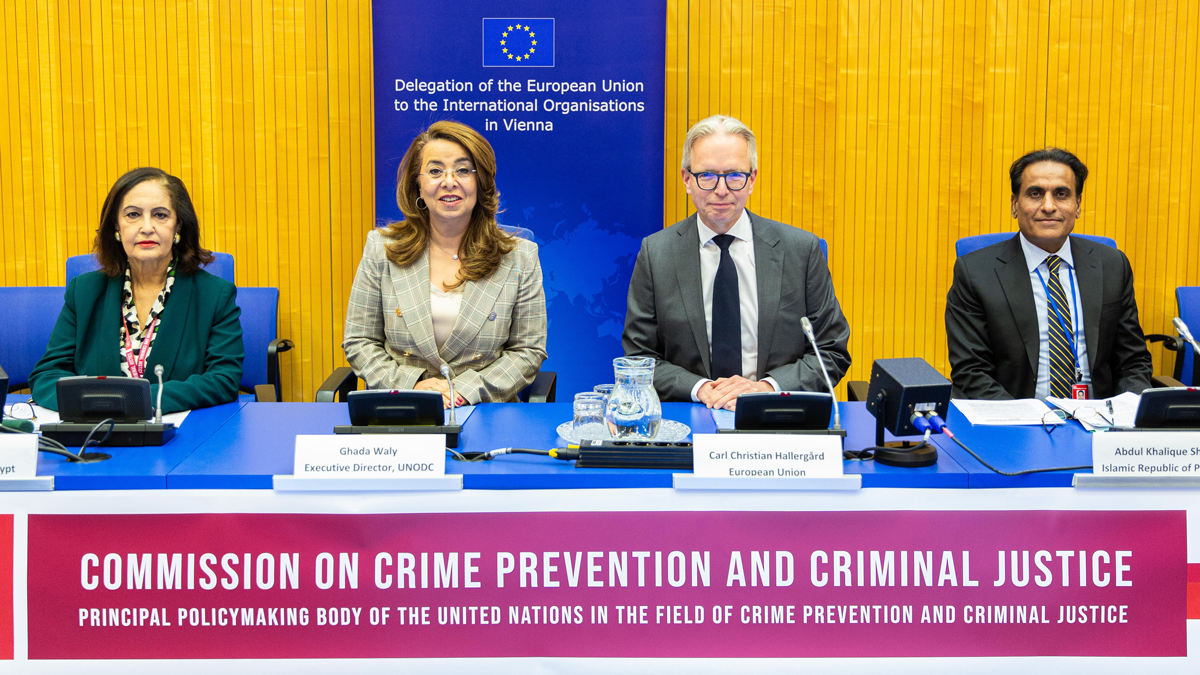
Vienna (Austria), 16 May 2024 – Migrant smuggling is a booming criminal enterprise, but several obstacles prevent countries from tackling it effectively.
These include the enormous scale and transnational nature of the crime, the lack of criminalization in many countries and the substantial illicit profits behind it.
The United Nations Office on Drugs and Crime (UNODC) and the European Union (EU) have been working together to combat migrant smuggling for 15 years. During this time, they have implemented numerous initiatives that aim to address some of the most pressing challenges associated with this crime.
One of UNODC’s flagship projects in this area is the EU-funded Global Action against Trafficking in Persons and the Smuggling of Migrants (GLO.ACT). Since 2015, the initiative has been helping its partner countries respond to migrant smuggling in an innovative, demand-driven, and targeted way.
Migrant smuggling is estimated to be worth 5.5 to 7 billion USD globally, equivalent to the gross domestic product (GDP) of the Maldives or Montenegro.
UNODC has recently documented how this crime is becoming increasingly complex and intertwined with other forms of organized crime, such as corruption, money laundering, as well as human, arms or drug trafficking.
From 2022 to 2023 alone, smugglers transported around 223,000 migrants across the Central Mediterranean Sea – one of the largest and deadliest smuggling routes stretching from North Africa to Italy. This represents an alarming 60 per cent increase compared to the previous year.
Migrant smuggling is no longer a localized issue between countries sharing borders. Migrants sometimes spend years trying to reach their destination in a distant country, making it that much more challenging to detect, investigate and prosecute smugglers.
Despite its overwhelming magnitude, smuggling is not yet criminalized in some parts of the world. This leads to several problems, including the difficulty in effective investigation and prosecution, both domestically and across borders.
The lack of an effective legal and policy framework against migrant smuggling also promotes impunity for the criminals involved, who are then further emboldened in their acts.
“We need to keep improving our responses and partnerships to disrupt and dismantle agile criminal networks and go after their profits,” said Ghada Waly, UNODC Executive Director.
Recent tragedies in various parts of the globe show that smugglers have no qualms about sending overcrowded, dilapidated boats out to sea or locking up people in suffocating containers for days on end. And they often evade accountability if the migrants do not reach their destination alive.
In fact, 2023 was the deadliest year on record for migrants and refugees, with more than 8,000 people dying along migration routes globally – a 20 per cent increase from the previous year.
Besides accidents and disasters, UNODC has extensively documented how smugglers subject migrants to physical violence, extortion, gender-based violence and forced labour.

Smugglers’ services do not come cheap. Criminals charge up to 6,000 EUR for a single Mediterranean crossing from North Africa to Europe. A trip from South Asia to North America can cost anywhere from a few hundred US dollars to as much as 55,000 USD.
For some highly organized gangs, smuggling is only one crime among many other criminal activities. Despite the tremendous profits made by smugglers, financial investigations into their activities are almost non-existent.
A recent UNODC study, prepared in cooperation with the EU, showed that money from smuggling is often laundered, used to fuel corruption or spent on lavish lifestyles.
“This transnational threat requires joint and concerted action, and I am proud to say that the EU has been a steadfast partner against migrant smuggling, from political engagement and policy exchange to investing in important technical cooperation programmes,” said Waly.
“Our cooperation with UNODC is excellent,” said Mr. Carl Hallergård, Ambassador of the European Union to the United Nations in Vienna.
Last November, the European Commission launched a Call to Action for a Global Alliance to Counter Migrant Smuggling and highlighted its partnership with UNODC in this work on bilateral and multilateral levels.
“This is a step in the right direction – addressing and countering the smuggling of migrants requires a coordinated and multi-stakeholder approach,” added Hallergård.
“Pakistan is one of the countries to which UNODC and the EU have provided support through GLO.ACT,” said Waly. “We have worked closely with the government to provide training on intelligence-led investigations. Notably, our support enabled a successful conviction relating to the 2023 boat tragedy, in which more than 300 Pakistani migrants lost their lives off the coast of Greece.”
“The assistance provided by GLO.ACT has enhanced our capacity to prevent and address migrant smuggling, safeguarding the rights and dignity of vulnerable people,” said Abdul Khalique Shaikh, Inspector General of Police Balokistan in Pakistan.
The joint anti-smuggling work of UNODC and the EU was discussed today at a special event, “Celebrating EU-UNODC Partnership in Addressing Migrant Smuggling through a Whole-Of-Route Approach”, in the margins of the 33rd session of the Commission on Crime Prevention and Criminal Justice (CCPCJ) in Vienna, Austria.
“The joint efforts across various fronts, from capacity building for criminal justice professionals to assisting victims, underscore the comprehensive approach needed to address this heinous crime effectively,” said Ambassador Naela Gabr, Chairperson of the Egyptian National Coordinating Committee for Combating and Preventing Illegal Migration and Trafficking in Persons, who attended the event.